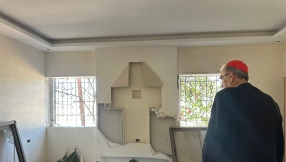Christian Aid Criticises New World Bank President Nominee
In a statement on the Christian Aid website, the organisation say that "most poor nations – where the World Bank and the International Monetary Fund (IMF) wield the most power – have the least say in the way the institutions are run and the decisions they take."
The aid agency claimed that the latest appointment was a stark reminder of the undemocratic nature of these international financial institutions.
The statement went on, "US President George Bush is able to put forward a controversial ally and strong advocate of the Iraq war to run an institution that has a significant influence over the economic fortunes of developing nations.
"It is difficult to imagine how Mr Wolfowitz’s past experience as Defence Secretary Donald Rumsfeld's deputy will have prepared him to lead an important multilateral agency tasked with promoting good governance and poverty reduction throughout the developing world."
Christian Aid point out that commitments have been made over and over again by the UK government as well as other Western countries to reform the process. The agency warned: "Recruitment procedures at the higher levels of the World Bank and IMF resemble an old boy’s network, and not the transparent process we would expect from institutions that are technically part of the UN family’."
In 2000, the UK government in fact pledged to challenge the undemocratic nature of the World Bank and the IMF in a White Paper on globalisation. In addition, just last week the Commission for Africa, a government-backed initiative, told of the urgent need of good governance to help African nations out of poverty.
Christian Aid’s statement concluded, "Yet today has shown that the principles of good governance only apply to African governments, and not to the institutions who wield so much power in the continent."













